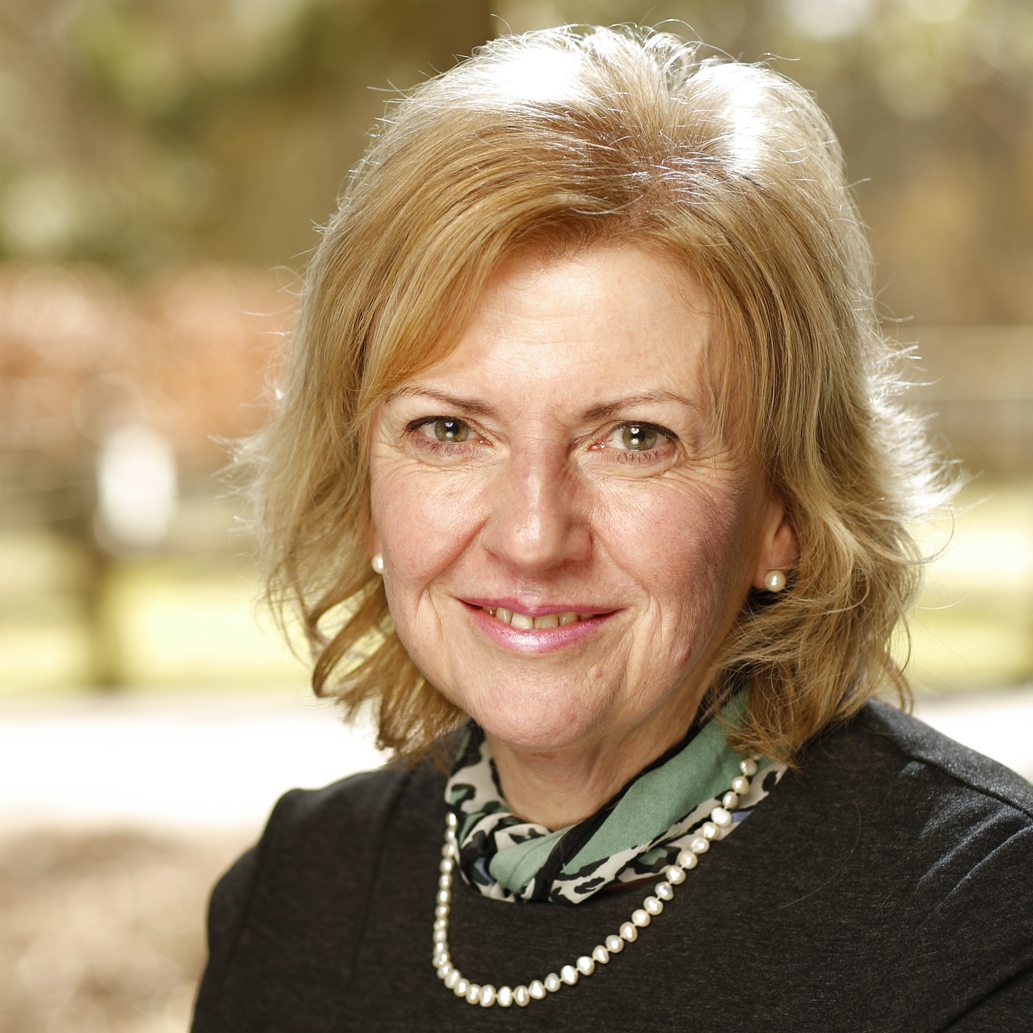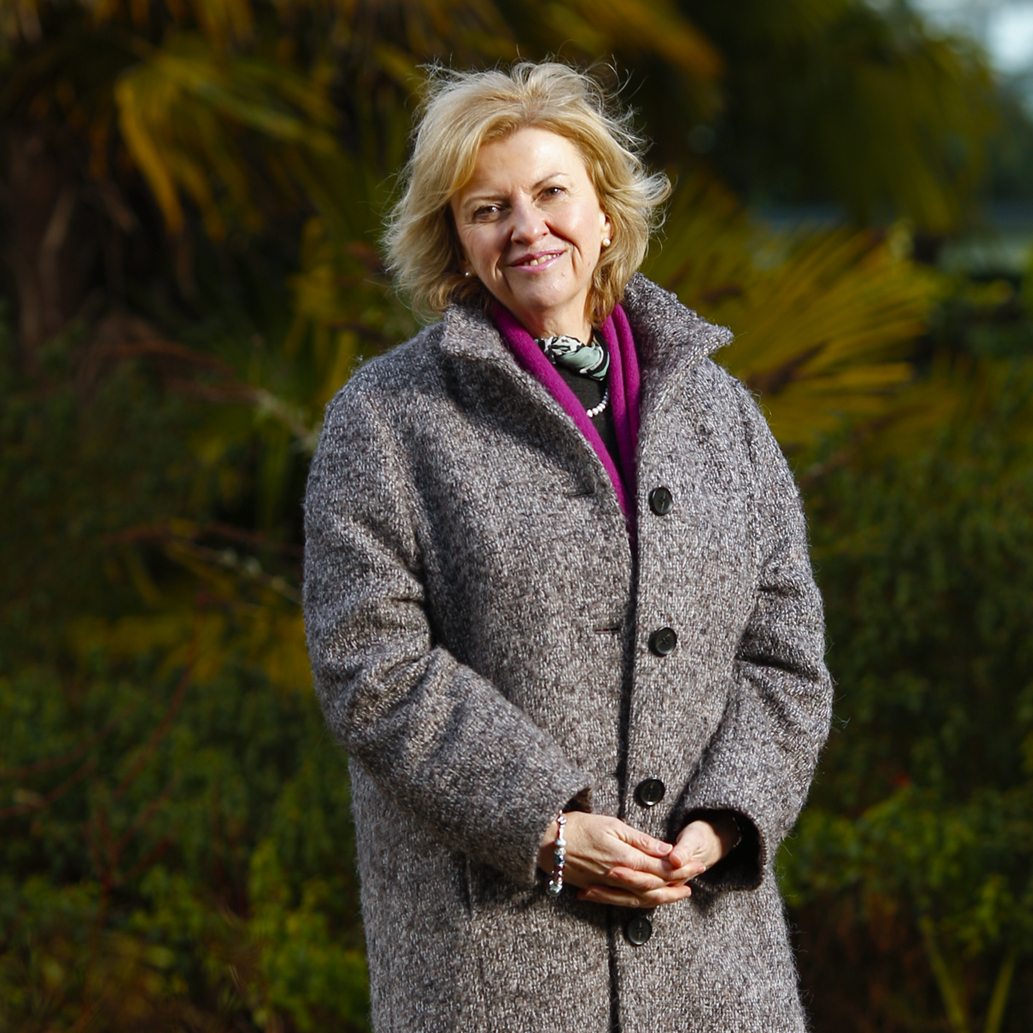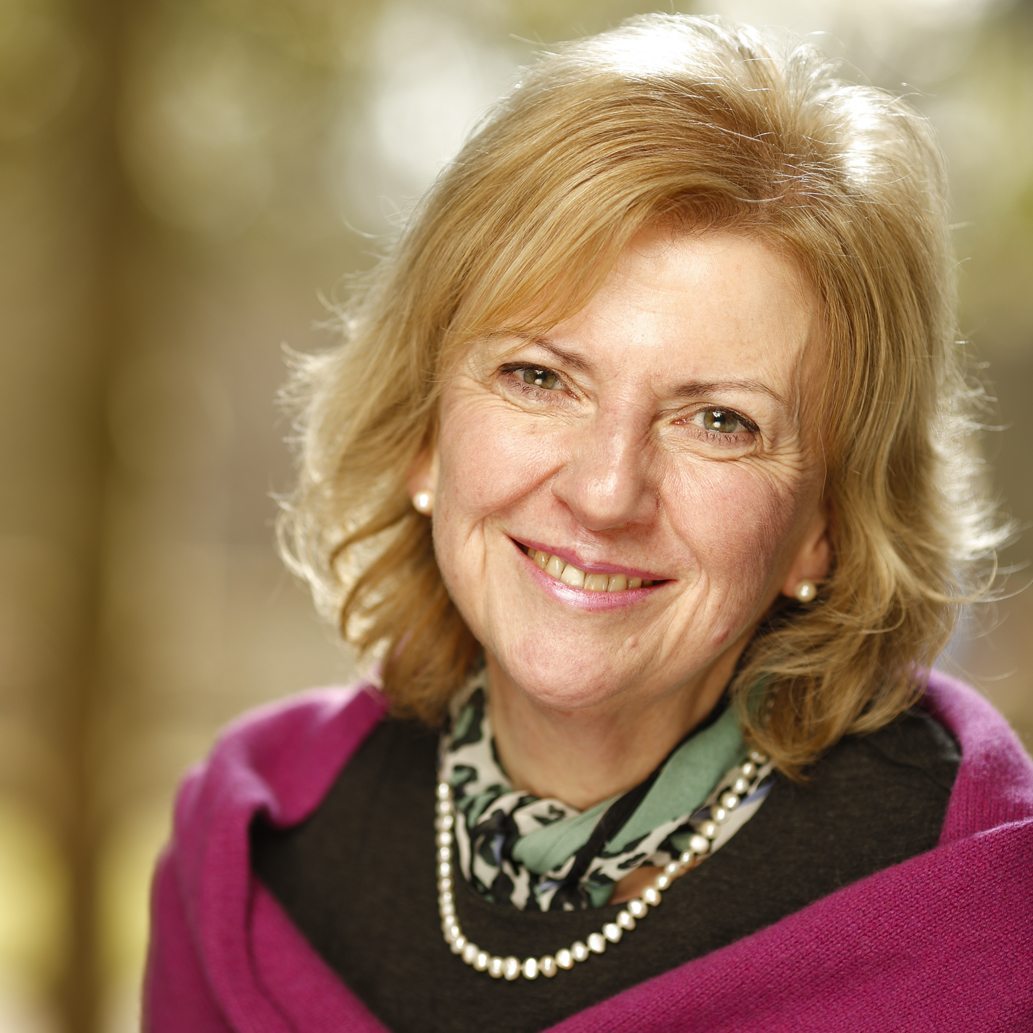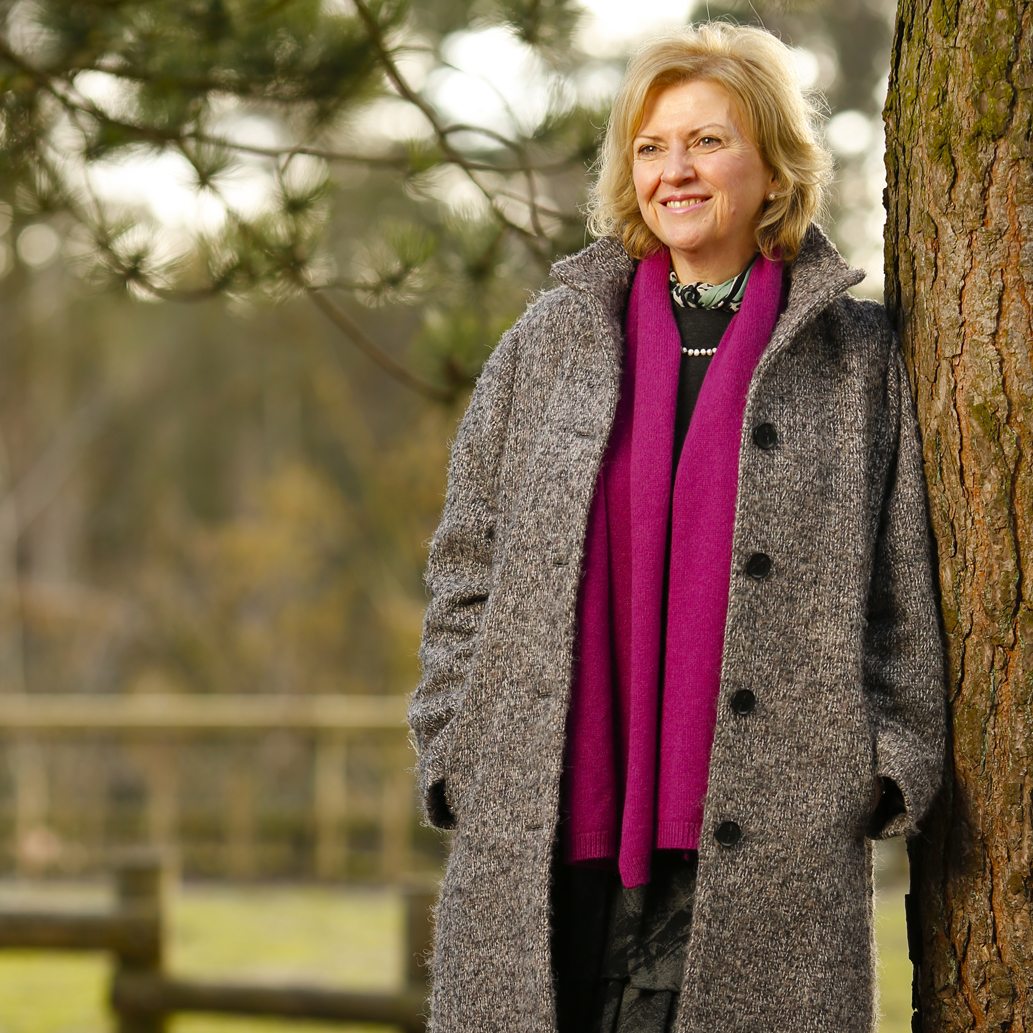Judi, give us an idea of your early life and career and what it was about HR that got your interest?
I was definitely interested in HR, but I quickly discovered that it’s not something you can get into without some relevant experience and qualifications, for obvious reasons. I met my husband at University, and we fell into a pretty stereotypical pattern, whereby his was to be the graduate career path and I went for the secretarial career. But little did I know a set of circumstances were about to dictate my future career path. I applied and got a secretarial job at Trent Polytechnic, in the leisure services division, where I met Clive Gordon. He left for a new job, which was to get the first Center Parcs in the UK up and running, at Sherwood Forest. He teamed up with Tom Flynn to get this massive project underway and I found out that he was looking for a Secretary/PA, so I applied and got the job. That was 1985, and on day one, there was three of us… four by the end of the day, as a receptionist started.

So you were there before the spade first broke the soil.
Yes, and it was a case of multi-tasking for everyone, although I recollect that I really felt at home with people management work, as we rapidly resourced up on multi-skills and disciplines. Equally, I must have shown some sort of aptitude for HR, because within two years, the Deputy MD sat me down and said: “Judi we really need a proper HR department to deal with this”. I couldn’t quite believe it, because my earlier attempts at getting into HR had failed, and here I was taking on this significant and quite daunting proposition, with little more than rudimentary experience and, common sense to bring to the role. So I agreed to take it on the condition that I could do my formal studies in HR, or else I would have been illequipped to take the business through developing some pretty sophisticated HR strategy. Steve Brown agreed, and I crammed the first year’s study into five or six months, so I could be ready to hit the boards running with the business plan. Further on, I went to business school and did the following two years there. But my first role was brass tacks stuff, combining practical issues, such as cars and telephones, as well as the HR function of course. Then by the early 1990’s my role as HR Manager for the UK was fully-realised, and I could put my entire focus there.

You were dealing with some large scale and complex HR strategy with no prior experience at that level. That is impressive.
In retrospect, yes it does seem more surprising now than it did then, when it was a case of getting on with the tasks in hand, but for sure, there must have been a good deal of naivety involved. But we had Sherwood Forest up and running, and we were looking to the future long term, and next up was the planning and development of Elveden Forest in Suffolk.

At a certain point, in terms of the rapid growth of the business, it must have been clear that HR had to be represented at board level.
That was definitely the case! Up until that point, the day-to-day HR management issues were being handled centrally from Head Office, and if one site was getting tough to manage, when we had Elveden Forest up and running, two was going to be too much of a stretch. We were recruiting people in the Villages to perform those HR roles, but a lack of strategic and overarching HR was beginning to be exposed, and so I went to the CEO, Martin Dalby and basically said “we cannot carry on without HR at the board table.” And fortunately he agreed.
Again, a massive step up, what qualities do you think you possess that enabled you to cope with such step changes in your career?
Well, I’m a very good planner, and I like to be organised and not leave anything to chance. Unquestionably, I was daunted by taking on the directorship, mainly from a position of inexperience, and I did feel the weight of responsibility and wondered whether I had done the right thing in taking it on. But I had been there from day one, and along the way, what gave me confidence was that we had got most things right, and that was encouraging. And increasingly, I was utilising HR in a much more strategic way, and understanding the importance of stepping back and seeing the bigger picture, which is revelatory when you have spent a great deal of time with your nose close to the grindstone. I was thinking about this the other day, HR is writ through well run businesses and it impacts on the detail – an example for us would be a drive to encourage the people cleaning the lodges to turn the thermostats down in the lodges after cleaning, to save electricity. With that sort of initiative, you can feel and see the immediate effects. But big picture strategy is obviously something quite different, and much of our frame-working has been about a level of influence at both ends of the scale and right through the middle too. But you can never be complacent and assume that if something is working, then that’s fine. I very much believe that the best way to co change is by evolution rather than revolution, and we’re constantly moving things along, testing that something is up to task.
The hospitality sector traditionally had a poor reputation, in terms of reward, engagement and nurturing careers, leading to high churn.
We recognised this early on, and realised that this need not be the case, and so, in order to attract talent, we had to really commit to engagement, reward and career potential. A big part of making sure this was achievable was to develop a strong line manager framework. To this day we have very little in terms of HR at Head Office, as I said, much of the HR management happens on site and that includes reward and recognition. We have a reward manager of course, but it is fundamental that this is managed individually at the Village. Again, a big part of our ethos is that we don’t focus disproportionately on management, but emphasise teamwork, at all levels of the business, so the emphasis for us is to have a range of rewards that has real impact. A great example is a profit share scheme, which is not common in the hospitality sector. We had a management bonus scheme running, and I wanted to bring something in so there was something in it for all team members. The scheme is called “Shared Success” and last year, that paid out £750,000 to our team members across the business. This was in conjunction with a drive to make reductions and cost savings, but the share scheme proved positive from day one, encouraging efficiencies and self-responsibility, which instantly impacted positively on the bottom line. Shared Success has been running now for eight years, and our labour turnover has come down significantly, running at 26 percent which is good for the industry. It’s always difficult to link what you’re doing directly to the benefits to the business, but a fantastic way of gauging impact is just talking to people, you can really sense that engagement, and it’s a good example of how big picture strategy can be really felt on an individual basis.
Going back to your question, yes I do think the hospitality sector has had a poor press, and even today, if you went into a school, there wouldn’t be many kids that would say they dreamt of a career in hotel work, few parents would encourage that. So I would agree, that as a sector, it has a lot of work to do, but I’m pleased and proud with what we’re achieving. Also I don’t think it’s all the sector’s fault. There’s been such a long and sustained push for school leavers to get a university education, Government target was 50 percent, and I think they graduate with very high expectations, and a career in hospitality is not on the radar. But in truth, the hospitality sector offers such a rich variety of potential careers and for sure, as a sector it traditionally does attract non-academic people, who then go on to have very successful and fulfilling careers. We have deliberately not run a graduate training scheme, because we feel we have a wealth of people we can develop ourselves.
In line with this, we’ve never taken advantage of paying young people below the minimum wage, and so people below the age 21 get the same pay rate. Another benefit, which is really appreciated, is everyone receives a hamper at Christmas, and we take a lot of care in choosing those every year. We celebrate things like long service and star performers and we go to great lengths to make it a celebration, as opposed to just a presentation, and we make a determined effort that everyone has the same experience. So although we leave that to the individual Villages, we do have a set of standards to make sure that such celebrations are properly observed and carried out.
It must be a leap of faith to relinquish control from a centralised headquarters, and what you are creating is mini towns, in rural and remote places. There is a necessity for an awful lot of trust there, particularly in this sector where one mistake turns into a bad review on Tripadvisor.
I think the managers in the respective Villages would tell you that we still set an awful lot of standards centrally, but in HR as you’ll know, a lot of decisions boil down to individual sets of circumstances. But I don’t like things to be too black and white, interpretation is very important, and I want the HR managers at the Villages to make decisions that reflect what’s happening in their Village. And yes you’re right, the Villages are based in rural communities. But what is integral to what we set out to achieve is consistency, both for employees and, of course, our guests. You know this is “hospitality” and it’s about meeting high expectations so that guests receive a friendly and attentive service, rather than a prescribed service.
Tell us about the new Village that is soon to be launched at Woburn and how planning and development has gone.
We’re right in the middle of a large recruitment campaign, 1300-1500 new employees across the departments, and Woburn is the beginning of a culmination of ten years from the site acquisition, with two-to-three years HR planning. But in terms of the strategy to align the needs of the development, top of the list was, that centrally, Head Office was supporting three Villages. Then with the addition of Longleat Forest, that was a significant addition. But the real acid test was, with the addition of Woburn Forest, could we manage five Villages, with the last one in development too? The major concern of course was, could we run the risk of taking our eye off the ball somewhere, could we realistically – both physically and systemically – manage them all? Particularly as key personnel were engaged in the development of Woburn Forest. We then had to sit down and plan how we would get 1500 employees up and ready for when we open up to our guests. Bear in mind that you have no access to the site, it’s about 100 miles from Head Office.
How has your recruitment strategy and resourcing changed over the years?
We start at the top, bringing the management level group of people in first, and the way it works is we train the managers, and then this programme rolls down from level to level. We also discovered an online recruitment system Changeworknow which we immediately identified as being a great fit for our purpose, because it supports our mantra for recruiting behaviours, as opposed to qualifications and experience, which was the way our original provider delivered. So we decided late to change provider, and this brought a number of benefits immediately. For example, we could develop a bio-screening system, which enabled us to score and identify the best candidates, and then we needed to filter them all down. It’s given us much more flexibility, and it’s made it easier to allocate the right people to the right roles. We’re very well known in the areas in which we operate, and to support this, we have developed an employer brand, Flourish in the Forest, that’s available on the website, and what we really wanted was to provide real people to have a platform to talk about what it’s really like to work for Center Parcs, and this gives an honest appraisal of life in the Villages.
Casting your mind back, how has the business changed?
Well, it’s 20 years since we opened a Village from scratch, and of course today we understand our business much better. But you have to be mindful that it’s a bit like driving a car, you know how to press the pedals and look through the windscreen, but you must never take anything for granted and operate on autopilot. Hospitality is hard work, no mistake about that, and guest expectations are much higher and competition is greater. And you know, we have achieved an incredible amount in two decades, re-defining holidaying in the UK, for example. And we have had the change management challenges of having different owners. But whatever happens, in hospitality, central to your success is the satisfaction of your guests, and so it’s the proverbial image of the swan, gliding serenely on the surface, paddling like mad below.
What is the next stage for the business, for HR and you as HR Director?
We’re opening Woburn in the spring, and so recruiting and training exactly right and significant focus will continue until September time. So that will require a robust and sustained level of support. Then the next phase for the business is assessing whether we have the structures and capacity to continue to manage five Villages. And of course, we’re constantly probing aspects of the business and asking difficult questions of ourselves, to see where we are falling short and where we can improve. It’s difficult to benchmark your performance, especially as the business historically has been inward looking, and we don’t have a direct competitor. So you have to keep asking questions about how you operate. For example, there’s the issue of whether to outsource services or recruit internally, and one of the things that happened with Blackstone was outsourcing, we believe that at this stage, this is the right strategy, but again you can never afford to be complacent and accept the status quo. From a personal point of view, I’ve taken the opportunity to look beyond the boundaries of the business and have pushed what I believe are really important agendas at Government level, and getting involved with other employers, on the subject of youth employment. I’ve been invited to join a communications team, which will give me an opportunity to see what other employers are doing, which will be refreshing and I’m sure revealing and useful.
How do you think HR has faired, and what are the signs that your efforts are being rewarded?
And what sets Center Parcs apart as an employer? Recently we had an Investors in People assessment come in to carry out independent employee surveys. Of course, you hope for positive results, but you can never be completely sure what you’re going to get back. We got extremely positive feedback from the assessors about how strongly our employees felt we were a good employer. So, as you can imagine, that was a real boost for us. There’s a lady in my department, and her sister works in the pancake house, her son works in security with her husband in maintenance. We’re very locally focused, and our reputation is important – people know when you’re not a good employer. There was a view in Woburn initially that additional employment wasn’t needed. But we made a lot of commitments, including a commitment to employ locally which we are, of course, more than happy to commit to.
It's rare these days for somebody to spend so long at one organisation, how do you reflect on your career so far?
I wholeheartedly believe that you should never stop learning and developing and never stop challenging yourself. Yes I am surprised that I’ve spent so much time with one employer, but this business has always been about change and development. There have been times where I thought, maybe I need a new challenge, of course, but then something has always come along and I get sucked back in and totally absorbed in what needs to be done. It’s been a fantastic career and I’m very proud of what we have achieved. I know it sounds like a cliche but it is completely true, people make the business, and that very simply and succinctly tells you all you need to know about HR and its place in an organisation.
For further information:
www.centerparcs.co.uk












